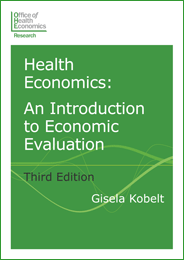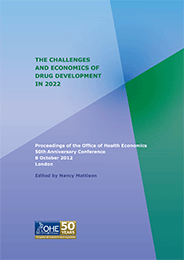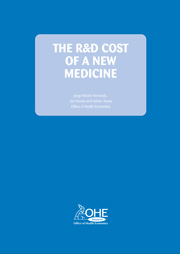Unlocking the Value of Combination Therapies



Paul Dolan is Professor of Behavioural Science in the Department of Social Policy at the London School of Economics and Political Science and also serves as the Chief Academic Advisor on Economic Appraisal for the UK Government Economic Service. He…
Paul Dolan is Professor of Behavioural Science in the Department of Social Policy at the London School of Economics and Political Science and also serves as the Chief Academic Advisor on Economic Appraisal for the UK Government Economic Service. He has published extensively on what measures of benefit can and should to be used to inform resource allocation decisions in health care. His perspective is that the end-point of providing health care should not be health itself but, rather, the impact that health states have on overall subjective wellbeing, or “happiness”.
Paul Dolan is Professor of Behavioural Science in the Department of Social Policy at the London School of Economics and Political Science and also serves as the Chief Academic Advisor on Economic Appraisal for the UK Government Economic Service. He has published extensively on what measures of benefit can and should to be used to inform resource allocation decisions in health care. His perspective is that the end-point of providing health care should not be health itself but, rather, the impact that health states have on overall subjective wellbeing, or “happiness”. This approach has important implications for how innovation and treatment are valued, challenging some of today’s most common methods.
In this new report published by the Office of Health Economics, Prof Dolan provides an accessible guide into the latest developments in happiness research as they apply to the valuation of health. This report considers the degree to which happiness data can overcome some of the well-known problems with existing preference-based ways of valuing health. It presents new valuation data that show how the dimensions of health that matter most in happiness regressions are not the same as those that matter most when people are asked about their preferences. In particular, mental health matters more in happiness reports. One implication of using happiness to value health, then, might be that greater priority would be given to mental wellbeing than to physical functioning and pain.
Download Dolan, P. (2011) Using happiness to value health. London: Office of Health Economics.
An error has occurred, please try again later.
This website uses cookies so that we can provide you with the best user experience possible. Cookie information is stored in your browser and performs functions such as recognising you when you return to our website and helping our team to understand which sections of the website you find most interesting and useful.
Strictly Necessary Cookie should be enabled at all times so that we can save your preferences for cookie settings.
If you disable this cookie, we will not be able to save your preferences. This means that every time you visit this website you will need to enable or disable cookies again.
This website uses Google Analytics to collect anonymous information such as the number of visitors to the site, and the most popular pages.
Keeping this cookie enabled helps us to improve our website.
Please enable Strictly Necessary Cookies first so that we can save your preferences!


